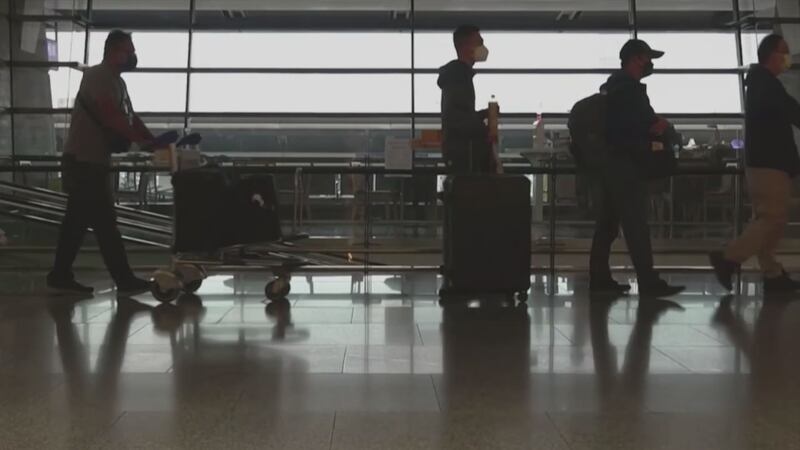PITTSBURGH — This is an unknown time for all of us, including parents with children in school. So many of you have questions, and while all of the answers aren’t available yet, Channel 11 wanted to see where everything stood with the future of all schools in Pennsylvania.
We spoke to state Sen. Wayne Langerholc, who is the chairman of the Education Committee.
Q: What is going on in Harrisburg right now?
A: Langerholc is about to introduce legislation as early as next week that would address a lot of the questions school districts have and parents are asking.
“As this situation is fluid and continues to develop, we have enacted a comprehensive bill here to address many of the issues we’ve been hearing,” said Langerholc. “Whether it comes from the legislative end or whether it comes from the governor, we thought it was important for the people to know that there’s work being one on this.”
Q: Are students going to have to go the full 180 days of school?
A: That is part of Langerholc's bill, which is bipartisan.
“One of the components of this legislation would be to waive the 180-day requirement,” Langerholc said.
That waiver would be for all public and private schools.
Have questions about the spread of the coronavirus? We have an entire section dedicated to coverage of the outbreak. CLICK HERE for more.
- SCHOOL/BUSINESS CLOSINGS
- PA CORONAVIRUS MAP: See the number of cases in each county
- LIVE UPDATES: Latest national, world coronavirus news
- TIMELINE: Pennsylvania coronavirus updates March 19
Q: The federal government recently waived its testing, the PSSAs. What about the mandated state tests?
A: "The Keystone Exams are the state component we included within the legislation to waive," said Langerholc.
Q: Why are some schools having virtual classes while others aren't?
A: This comes down to a federal law called FAPE, Free and Appropriate Public Education.
It requires every student at a school to get one-on-one instruction, including students with special learning needs. Some schools districts are in better shape to accomplish this than others. Federal reimbursements for schools are tied to FAPE.
TRENDING NOW:
Channel 11 asked Langerholc about the discrepancies at schools across the state.
“That’s something that continues to evolve. We want to ensure that students are receiving instruction. However, we need to ensure that all students are receiving that instruction. That includes those in the urban and the rural communities, as well as the special education. So we need to tailor this approach to ensure that all the needs of all students are being met. That has been part of the conversation, part of the dialogue, and we will continue to address that moving forward,” Langerholc said.
Q: Is canceling the rest of the year off the table, or is everything on the table?
A: “We’ll continue to monitor it as it goes forward,” Langerholc said.
Q: Is there any item in the legislation pertaining to teachers?
A: Several. One item ensures that a public school employee does not get any more or less compensation had the pandemic not happened. The second ensures an employee won’t get more or less credit or contribute more or less than they would have otherwise to the Public School Employees’ Retirement Code. The third extends the continuing education for professional compliance period by one year.
Q: What about tuition for charter schools or cyberschools closed during the pandemic?
A: The legislation proposes a charter school, regional charter school or cyberschool get tuition payments based upon the student’s enrollment at the time schools were closed.
Q: Are state officials staying in contact with school districts?
A: Langerholc said they are in contact with superintendents as often as they need to be.
“We have been fielding calls since the beginning,” Langerholc said. “I want to stress that if any superintendent across the state has questions or concerns, please reach out. We have different conference calls that are being set up with other senators and superintendents. I’ve made it clear that we’re available to speak with them and address any concerns that they may have. We’re here to answer any questions.”
Q: Is it fair to say state officials don’t have all the answers for schools and parents but are working on getting those answers?
A: Yes.
“We have a lot of people across a lot of different disciplines that are working on this issue,” Langerholc said. “We all have a common cause. Rest assured that we are working on this, we have been working on this since the inception of this, and we’re going to continue to work toward it and continue to discuss this. The key here is communication. Know that we are all in this together, and we’re going to continue to work toward the best resolution we can.”
© 2020 Cox Media Group






